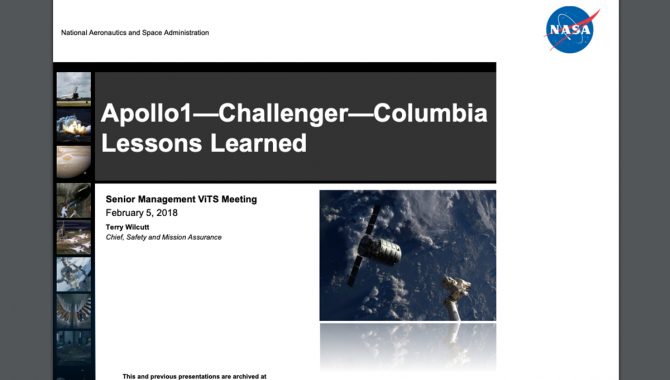
Powerpoint presentation annually reviewing lessons from our three major mishaps is our best chance to never forget them. Wayne Hale (former NASA Flight Director and Space Shuttle Program Manager) has recorded 10 enduring lessons from his experience.

Powerpoint presentation annually reviewing lessons from our three major mishaps is our best chance to never forget them. Wayne Hale (former NASA Flight Director and Space Shuttle Program Manager) has recorded 10 enduring lessons from his experience.

Following the Columbia accident, the independent Columbia Accident Investigation Board, commonly referred to as CAIB, had numerous findings and recommendations with regards to Technical Authority.
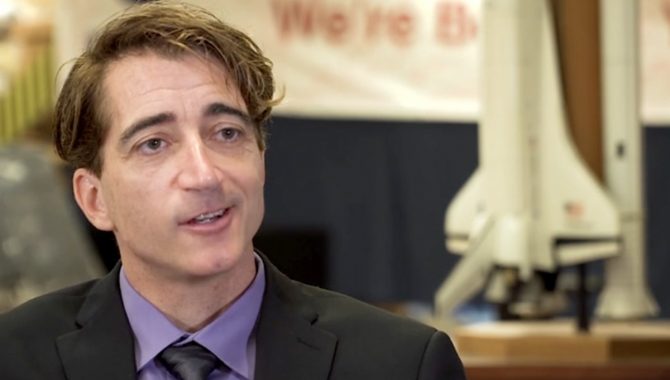
In this video, Mike Ciannilli, manager, Apollo, Challenger, Columbia Lessons Learned Program; Mike Leinbach, former space shuttle launch director; and Darren Cone, executive director, Center for the Advancement of Space Safety and Mission Assurance, discuss the story the Columbia debris had to tell and what was learned from studying these artifacts.
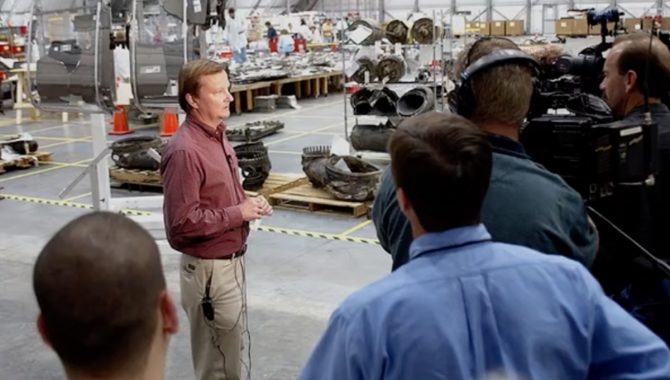
Mike Leinbach, former space shuttle launch director, led NASA’s reconstruction efforts after the loss of Columbia. In this video, he shares how the agency worked to piece together the found debris to learn exactly what happened during the accident.
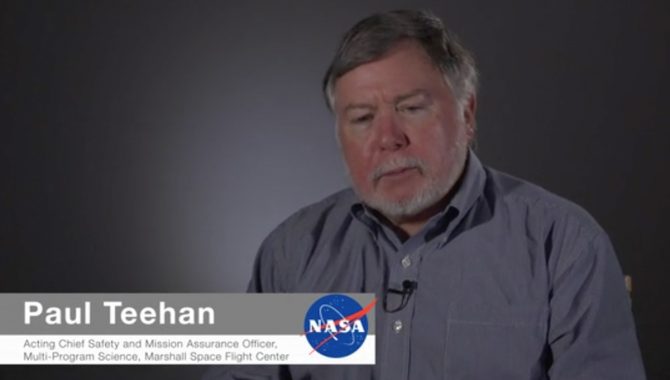
In this Knowledge Byte, Paul Teehan — acting Chief Safety and Mission Assurance Officer, Multi-Program Science, Marshall Space Flight Center — discusses differing opinions on a design change for the space shuttle solid rocket boosters and how those opinions were ultimately reconciled.
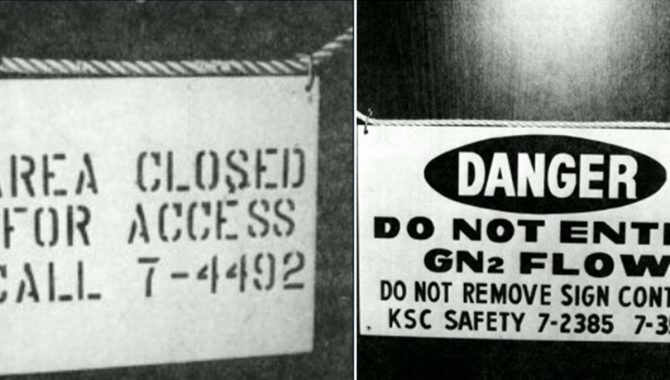
The Space Shuttle had been in development since the early 1970s, and its initial test flight, STS-1, was over two years behind schedule. As ground crews worked diligently to prepare for the launch, a group of technicians collapsed inside Columbia’s nitrogen-filled aft compartment after a countdown demonstration test on March 19.
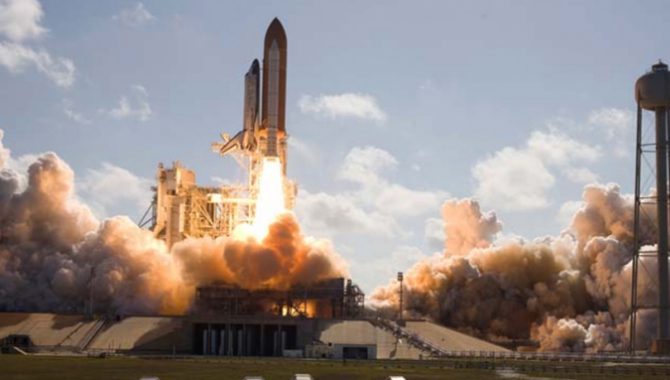
Case study- “Flawless” was one description of the May 31, 2008, launch of the Space Shuttle Discovery on mission STS-124. So when the NASA safety team at Kennedy Space Center set out to inspect Launch Pad 39A following that launch, they were surprised to find the area littered with debris. Powerful exhaust from Discovery’s liftoff breached the flame trench wall at the base of the pad.
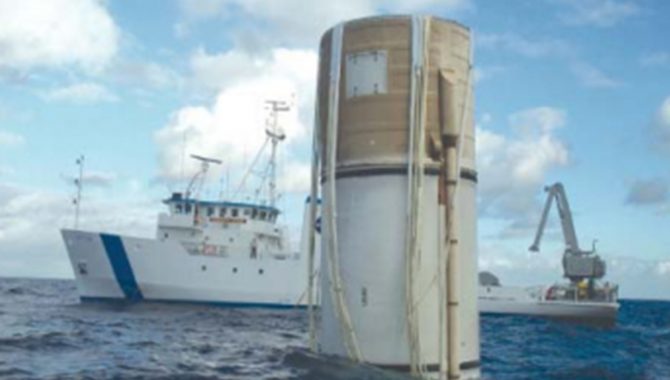
Case study- During the Solid Rocket Booster (SRB) recovery for the Space Shuttle mission STS-116, an injury occurred on the retrieval ship MV Freedom Star. On Dec. 12, 2006, the ship was towing a booster into port when the tow wire jumped from its tow chute and struck a nearby crewman.

As stated in NASA Procedural Requirements document for NASA Space Flight Program and Project Management Requirements (NPR 7120.5), the LBFD project was required to conduct a Joint Confidence Level (JCL).